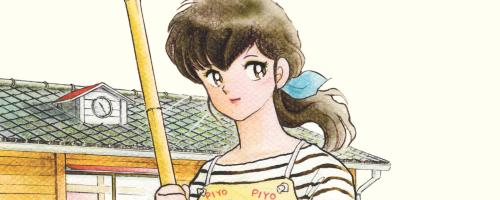Copy Link
Add to Bookmark
Report
Astral Avenue 08

From Rhode Island: Birthplace of GI Joe
and Providence, Amy Carter's turf
its:
********************
ASTRAL AVENUE
********************
No. 8 June 1987
Fun Filled All American Activities
PUBLISHER'S NOTE: Herewith, our nominations for Fun Couples of 1987.
Bruce and Connie WILLIS
Mel and William GIBSON
Tina and George TURNER
Cybil and Lucius SHEPARD
Howard and Scott BAKER
Eugene and Shawna MCCARTHY
Bob and Clive BARKER
Dick and Arthur C. CLARKE
Anita and Edward BRYANT
H.R. and Joe HALDEMAN
Betty and John FORD
Barbara and Glen COOK
DeForest and James Patrick KELLY
Charlie and Charles BROWN
C.J. Cherryh WILDER
IF "If This Goes On" GOES ON
Conventional wisdom dictates that all SF stories can be divided into
three classes: "what if," "why not," and "if this goes on." Let's assume
momentarily that conventional wisdom -- for once -- is right. I'd like to
look at this last category of story, examining its strengths and weaknesses,
and its current stature in the field.
Last item first. I don't believe most people would dispute that the
"If This Goes On" (hereafter, ITGO) type of story is in the ascendant right
now, thanks primarily to the works of William Gibson. The average reader, in
fact, probably conceives of the entire cyberpunk movement as an ITGO
phenomenon (a misreading Bruce Sterling has been at pains to dispute).
Although in terms of total units sold, fantasy epics and novels of half-assed
space empires outnumber the ITGO books, it is these latter works that receive
the lion's share of discussion and critical attention.
There's good reason for this. The ITGO book holds a number of aces
in its hand.
Realism sometims seems a dirty word among SF readers, but it's a
drug they secretly crave. And the ITGO book offers realism up the kazoo.
Done well, as in Gibson's books, the ITGO mode provides the closest sensation
available in SF to reading a contemporary mimetic novel. The reader is
convinced that he's inhabiting his actual future. She believes she's been
vouchsafed a prophetic vision of times to come. Such a powerful frisson is
not to be lightly negated. One reason ITGO books are so
convincing is that their roots are firmly planted in the present. The
Suborbital Express of Extrapolation always takes off from the Runway of the
Present. In an ITGO book, the reader encounters tokens and talismans of his
current life, which serve to anchor the new imaginative elements.
By definition, the ITGO mode must base its projections on current
trends, actual research, logical developments. An author can highlight,
accentuate, or exaggerate certain features of the present, but -- if he plays
by the rules -- he must extrapolate from actual features of the present.
Otherwise -- as when, say, an FTL drive is introduced -- we veer into the
"what if" mode.
Now, it is beyond any but the most niggling of disputes as to what
the current salient features of the present are: computers, biotechnology,
corporations, terrorism, ecodisaster -- stop me if any of this is starting to
sound familiar.
The point I'm trying to make is emerging from the shadows: the ITGO
book is a sexy, reader-entrancing, stimulating exercise. But by necessity it
hews to a very narrow path.
There is only one SF future with any real probability. (However,
this is not to maintain that Gibson or Watkin's world will necessarily come
to pass. As the mathematician Persi Diaconis has said, "Probability is not a
statement so much about what will happen, as about what I know.")
Let me illustrate what I mean.
In one of my notebooks is the scrawl: "Murder by industrial
waterjet."
In COUNT ZERO, Gibson, page 60, is the phrase: "...slice pizza with
a huge industrial waterknife..."
The future is definitely not going to revolve around industrial
hydraulic cutting mechanisms. Yet -- here are two people focusing on them.
Why? Because they are interesting, lively, credible futuristic gadgets that
serve to promote the frisson under discussion. I am willing to bet that
Gibson and I encountered these industrial tools in the same place: the pages
of SCIENCE NEWS of OMNI or SCIENTIFIC AMERICAN or THE NEW YORK TIMES SCIENCE
SECTION or SCIENCE DIGEST or HIGH TECHNOLOGY....
The end result of this reliance on likely developments learned about
from a shared knowledge-base (and let's face it: there are only so many
sources) is that all ITGO fiction starts to sound alike. A consensual
future, stifling of individual perceptions, begins to crystallize around the
writers like amber.
Is there any solution to this problem? Can the desired verisilitude
and relevance be retained, while still creating a unique future?
I believe the answer is yes.
What is needed is a fusion of modes, namely between ITGO and "what
if." As in evolution, this hybrid will possess the strengths of both
parents, and new ones they do not have.
The WI story has not been known for its credibility. Take a book
such as INVASION OF THE BODY SNATCHERS. What if pods from outer space landed
and began replacing humans with zombies? Well, the result might be a
suspenseful allegory about the Eisenhower era, but it just don't got the kind
of thrill we're looking for. One might as well say, what if we all turned
into rhinoceroses? It's just not gonna happen, and the reader realizes it.
However, I believe that with a little care in the initial choosing
of the germinal improbability, and, thereafter, by a careful adherence to and
blending of strict ITGO methods, valid, germane works can be written.
In fact it's already been done. What I'm proposing is not new.
The names?
Bester's DEMOLISHED MAN and TIGER, TIGER; Sterling and Shiner's
"Mozart in Mirrorshades"; Bishop's "The Quickening."
Telepathy. Teleportation. Time travel. Random relocation. These
are all blatant impossibilities, according to our current state of knowledge.
Therefore the works cited above cannot be of ITGO narratives. Yet, once
their seminal unlikelihoods are gotten beyond, we find that they possess many
of the attractive features of ITGO, along with the novelty that comes from
"what if." To my mind, this type of story transcends both the straight ITGO
and WI modes, offering the pleasures of both, and unique ones of its own.
Its hallmark is a fusion of improbable novelty and straight-ahead
sociotechnical extrapolation, to produce futures which, despite their
underlying impossibility, are as utterly convincing -- and as wildly
delirious -- as a simstim composed by Dali.
DO COMPOSERS DREAM OF ELECTRIC SHEEP?
"I like Philip K. Dick's world." -- Ryuichi Sakamoto, THE FACE,
March 1987.
CAN YOU SAY "YUPPIES," BOYS AND GIRLS? SURE YOU CAN.
My neighborhood currently swarms with rug-rats, crumb-snatchers and
curtain-pullers, all dressed more expensively than Adnan Khashoggi, being
pushed in $200 carriages by adoring Double-Income Moms & Pops. Out of
defense, I've been forced to learn a new word: brapholatry, the worship of
babies. Use it yourself, and antagonize your own resident Yups.
I KNEW THE BRIDE WHEN SHE USETA ROCK 'N' ROLL
(Inaugurating an irregular series of quotes from B.C. (Before
Cyberpunk) which illuminate, foreshadow, or belie our Current Predicament.
Entries solicited.)
"John Shirley grew up mostly in Oregon, where he was hated for being
skinny and peculiar. He worked on or edited a number of underground papers
before realizing that 'all politics is self-centered, self-corrupting,
hypocritical and bigoted.' He writes: 'I have played the various roles of
hippie, bum, student, criminal, egotist, fool, lecturer, euphemism, acidhead
and writer.' He hopes to write surrealist speculative fiction. He is
clearly well qualified by background and talent to do so."
CLARION III, 1973, p. 45.
REPORT FROM THE CONTINENT by Brian Aldiss
My wife and I did a drive through France last summer, calling in on
Verne's amazing tomb at Amiens, and eventually arriving at Geneva, where the
Villa Diodati stands, overlooking the lake, in a quiet suburb. You turn a
bend in the road -- and there it is, walls and heavy wrought-iron gates
making it inaccessible to rubberneckers. Of Byron there are plenty of local
reminders -- the Continentals love a lord. But the shades of the young
Shelleys have left no trace. Nor is there any monument to Frankenstein in
the town he inhabited. With a copy of the novel, we could follow the
monster's footsteps, and arrived eventually on the Mer de Glace, which is an
awesome sight. How well-advised Mary was to set FRANKENSTEIN in Switzerland,
that artificial state, rather than in the streets of London.
WRITERS REVISE THEIR LIVES!
COLIN GREENLAND:
Recently I was coming home quite drunk, quite late one night, and I
had to wait the best part of an hour at Liverpool Street railway station, the
London terminus for my local line. Extensive rebuilding work was in progress
(still is).
There was a man in a big mechanical excavator dipping great grabs
full of chunky masonry out of a hole in the ground, and tipping them one by
one into a relay of small dumper trucks. The truck driver would roll up in
his truck, stop and dismount (some sort of safety regulation, obviously)
while the excavator man -- neatly, almost daintily -- filled his little truck
with the next load of concrete rubble.
The excavator man worked swiftly, with the unthinking precision that
is the soul of grace. Splintered slabs of board, entire girders he dropped
into the hoppers of those trucks with no hesitation, and no error. He barely
split a brick. Once, when he reckoned a truck was not quite in the right
spot, he lowered the grab and nudged it back a foot, like a brontosaurus
budging a rock with its nose.
For once I didn't mind the wait for a train. I thought then that,
if I weren't a writer, I should like to be that excavator man. Who, if he
read this, would cry: "You what? Do me a favour!" (For I was quite drunk.)
When I visited Amsterdam in 1973, I remember I had a fantasy of
living a tall house overlooking a canal. I would get up each morning at four
o'clock, and go to work in a bakery, helping to produce crusty white loaves
with soft and steamy insides, and rich, moist wholemeal. Then I would go
home to my little room and write for the rest of the day: small, quiet poems
and slender novels of pellucid symbolism. My needs would be few. This
proposition seems no less preposterous and improbable than the former.
PHILIP JOSE FARMER
If I could start my life over again, at the age of eighteen, I would
become a sheep farmer in the Falkland Islands. So much for alternate
futures. Or pasts.
BRUCE STERLING
(Reprinted from SF EYE.) If I gave up writing, I'd have more time
to fool with my computers. They're a constant temptation.
RUDY RUCKER
If I didn't write, I'd like to teach computer languages I don't
really know to weird alien Pacific Rim people who don't really know
English... which is what I am in fact doing this year.
DAVID D'AMASSA
Have to agree with you about the ideal alternate life. I would love
to work in one of the strange used record shops in Providence. Imagine...
getting paid to listen to music. Wow. On slow days I could bring a book and
relax. It sounds like a great job.
PETER LAMBORN WILSON
My secret ambition is to run a coffee shop and hashish parlor,
decorated in orientalismo style, in that future utopia where such things are
no longer illegal. Talk about doing good to the human race, I think this
takes the cake.
*****************
Nasal Gel is safe and simple to use. Just a tiny dab of gel applied to the
inside of the nose delivers Vitamin B-12 directly into your system
***************
BISHOP'S MOVE by Michael Bishop
No piece of contemporary American writing since PORTNOY'S COMPLAINT
has stimulated me as much as Rudy Rucker's "Access to Tools" in the most
recent Astral Avenue. Some observations:
1. Ws no one else struck by the fact that the author of SOFTWARE has accused
Eisenhower's title AT EASE of flaccidity? Weird.
2. Rudy would probably enjoy the word "smegma" even more than he does the
word "sebum." (It's in Pynchon, too.)
3. "Net blowage"? Here in Georgia, we have far greater interest in "gross
blowage," which, along with chicken stealing and buggery, is one of our more
popular prosecutable acts. But, then, the rest of the nation has always had
a tendency to sneer at our backwardness.
4. As much as Rudy will enjoy the word "smegma", just that much will he
appreciate Vonnegut's BREAKFAST OF CHAMPIONS. It's a lousy novel, but one of
its endearing features is that Vonnegut tells us us the length of every male
character's penis upon first introducing him, a kindness that keeps us from
having to infer this statistic on the basis of dialogue, indirect
characterization, and/or ambiguous plot cues. (Later, Vonnegut wrote a novel
called "Deadeye Dick." I was afraid to read it.)
5. Even so, I believe that all writers should adopt the BREAKFAST OF
CHAMPIONS expository procedure, with the proviso that they modify it by
placing all penile measurements (at ease in one column, tumescent in a
second) in an appendix. One hazard is that longer novels will often have
longer appendices, a perfectly natural development that may encourage envy
among the succinct and/or those who favor female characters. (But maybe it's
time that some OTHER appendage inspired envy anyway.)
6. A personal confession: I have always envied the appendices of Samuel R.
Delany. Some will accuse me of racist stereotyping, but it's still a fact
that some of Delany's novels -- at least three of them -- have TWO
appendices. See Appendix B, p. 371, of FLIGHT FROM NEVERYON (Bantam 1985)
for an example of the way Chip turns Vonnegut's method upside down by SHOWING
rather than TELLING.
7. Rudy's curiosity about the size of Ike's male member has certain, uh,
ramifications for American presidential politics -- i.e., in the future,
"full disclosure" need not apply only to a candidate's financial condition.
(Female candidates, by the way, have ALWAYS been more up front about their
all-important physical attributes than men, especially when the office they
are running for is Miss America.)
8. Meanwhile, remember Big Ike's immortal words on this very topic: "Things
are more like they are today than they have ever been before."
9. Good clean frivolity is always hard to come by, but inanity of the
caliber of 'Access to Tools' is rarer yet. Even if he is the author of a
book called SOFTWARE, I hope Rudy can keep it up.
LIFE'S A BEACH
(photo)
Gregory Benford, Marc Laidlaw and Richard Kadrey (l-r), photographed at
Freestyle Con I, held last weekend on the North Shore of Oahu. Rather than
wear badges, which would have disintegrated in the surf, shirtless attendees
painted their names across their chests in zinc sunscreen. Panel discussions
included "How To Avoid Literay Wipeout" and "Waiting For the Perfect New
Wave." Hang ten to the tenth!
ALL LETTERS SQUEEZED OUT OF THIS ISSUE WILL
REAPPEAR!
********************
ASTRAL AVENUE Paul Di Filippo 2 Poplar Street Providence RI 02906
















